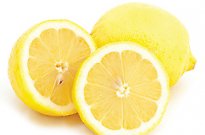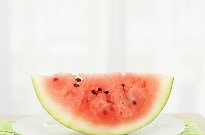
Top tips for staying hydrated

Don't misjudge your body's signals.
Sip your way to health and happiness – it’s easier than you think, writes NADIA FELSCH.
Water is required for every single biochemical reaction that’s taking place each second of each day in your body to keep you alive and well. Around 60 per cent of your total body weight is made up of water; it forms the basis of all fluids in the body – that’s blood, digestive juices, urine and sweat. But it’s also contained in lean muscle, fat and bones too.
Being hydrated means we’re able to support digestion, regulate our body temperature, lubricate our joints, moisturise the skin, deliver nutrition and oxygen to cells and also eliminate waste products effectively.
While the human body is smart and efficient in its need and use of water, there’s one big catch: we’re unable to store enough for our daily requirements. This means we need to replenish our water supply as the body uses it up or we become dehydrated and our ability to perform the aforementioned functions efficiently is diminished.
The precise quantity that we each require is dependent on our body size, unique metabolism, what we eat, how much we move and even the weather (hello, summertime); however, the reality is that most of us aren’t getting enough water.
What dehydration looks like
Some of the effects of dehydration are of the slow-drip variety while others are straight-up obvious – such as headaches, dry mouth and irritability. But one of the most overlooked effects can be detrimental in an entirely different way. Often, when we’re lacking hydration, we confuse that signal in the body for hunger. And that can lead to a variety of other issues including overeating, unnecessary fat storage in the body and sub-par digestion (because remember, water assists that process too).
On the other side of the coin, however, staying adequately hydrated with our friend H20 can mean that we feel satisfied, and for anyone struggling with overeating, this can lend a helping hand.
Simple rules for hydration
Whatever the season (though especially in the summer months), you need to be sure you’re drinking enough water. The Australian standard daily recommendation is eight cups (two litres) for women and 10 cups (two-and-a-half litres) for men. The variables are unique to you, so common sense and intuition about your unique needs go a long way here.
A big hit to hydration is the consumption of both alcohol and caffeine. In a nutshell, both of these choices interfere with the mechanisms that regulate water levels in the body.
So, particularly in these warmer and typically celebratory months, it pays to take more notice of your water versus coffee and booze intake.
Good hydration is about walking the line between more indulgent activities while taking care of the incredible body that you need to support you through each and every day as well.
Fortunately for us, as most foods contain water, our body is clever enough to derive around 20 per cent of its total water requirements from the food that we eat. Another 10 per cent is a byproduct of digestion, leaving 70 per cent that we need to consume by drinking water.
NEXT: Discover ways to stay hydrated.


